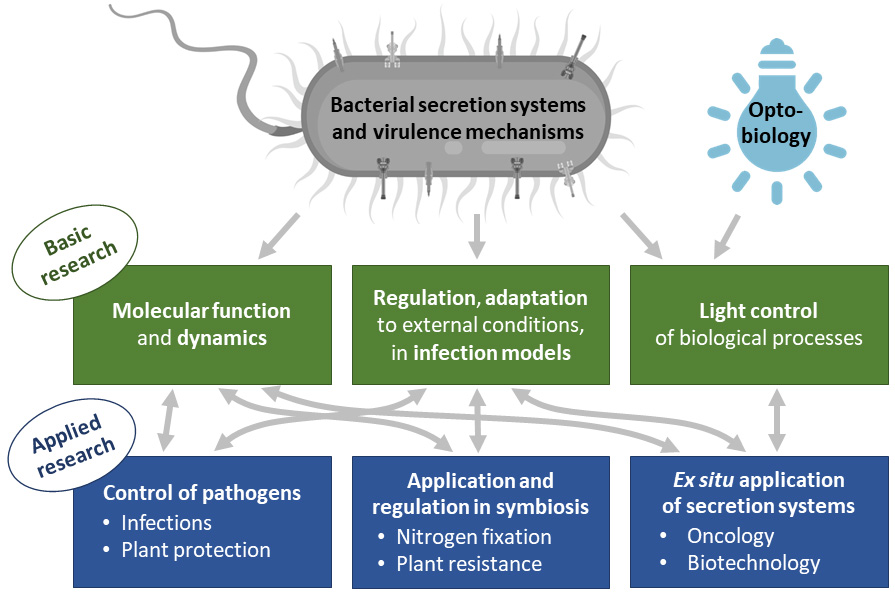The Department of Applied Biology investigates bacterial secretion systems and virulence mechanisms to better understand their role in infection biology and engineer applications in biotechnology and healthcare
Bacterial secretion systems enable bacteria to communicate with and influence their surroundings. These systems are among the most complex and fascinating molecular machines in prokaryotes, playing a key role in bacterial symbiosis, competition, and virulence. Remarkably, nineteen of the world's twenty deadliest bacterial pathogens rely on these systems to infect their hosts. However, beyond their role in disease, these secretion systems—evolved to precisely manipulate animal and plant cells—hold vast potential for innovative applications.
Our research investigates the molecular mechanisms and dynamics of these secretion systems within biologically relevant models. We want to understand how external factors regulate these systems and explore their application potential in medicine, plant protection, and biotechnology. By integrating cutting-edge approaches such as synthetic biology and optogenetics, our goal is to translate these discoveries into practical solutions that address some of the most pressing challenges in health and sustainability.

Interesting in joining the team and finding out how bacteria use secretion systems allow bacteria to infect and compete, and how we can make use of these fascinating machines? Contact us!
We also offer exciting Bachelor and Master thesis projects!
